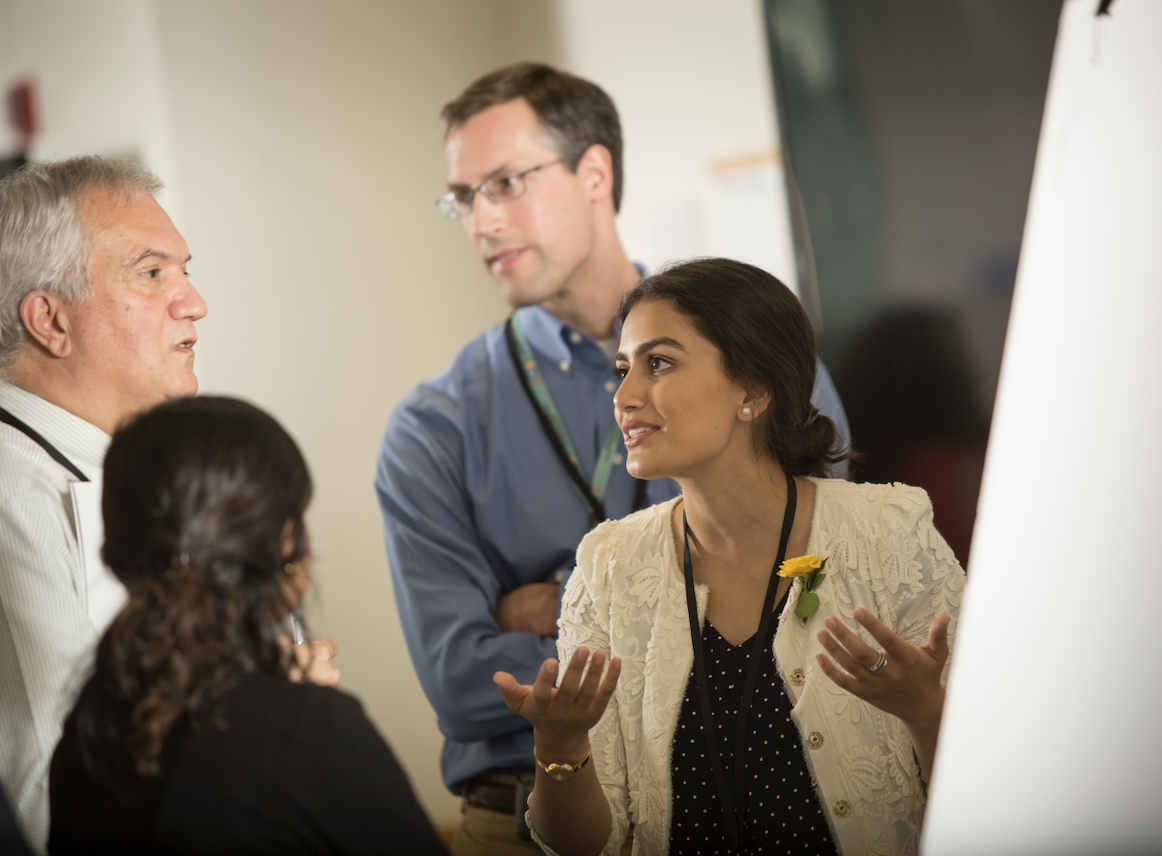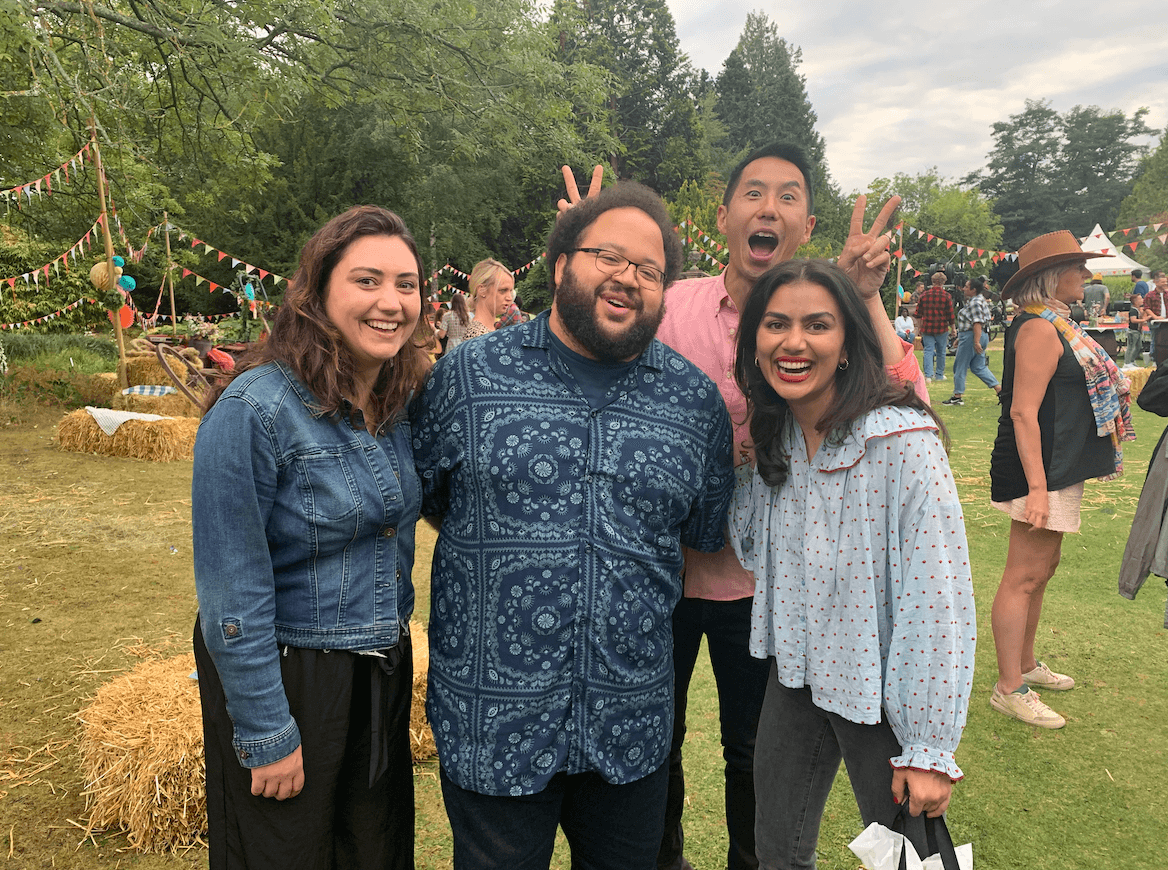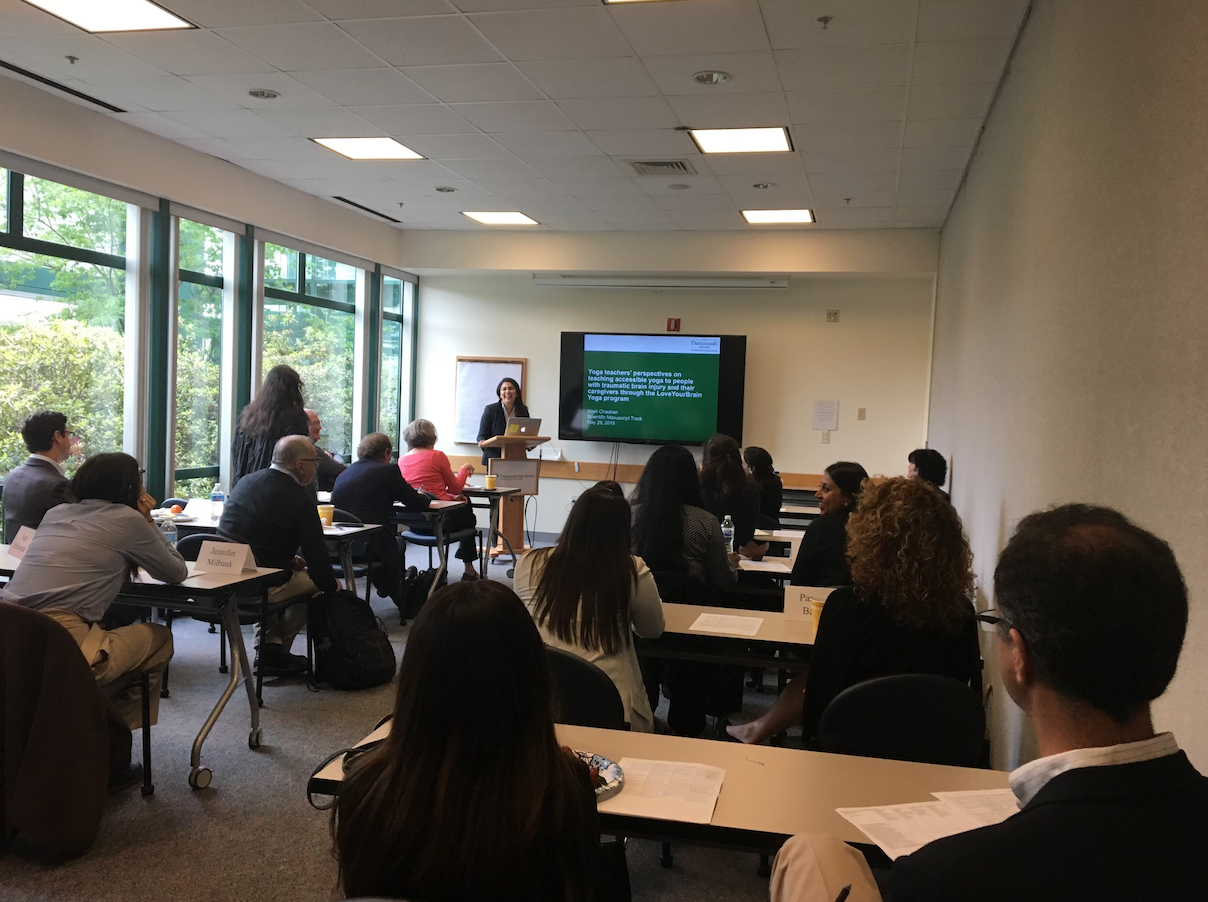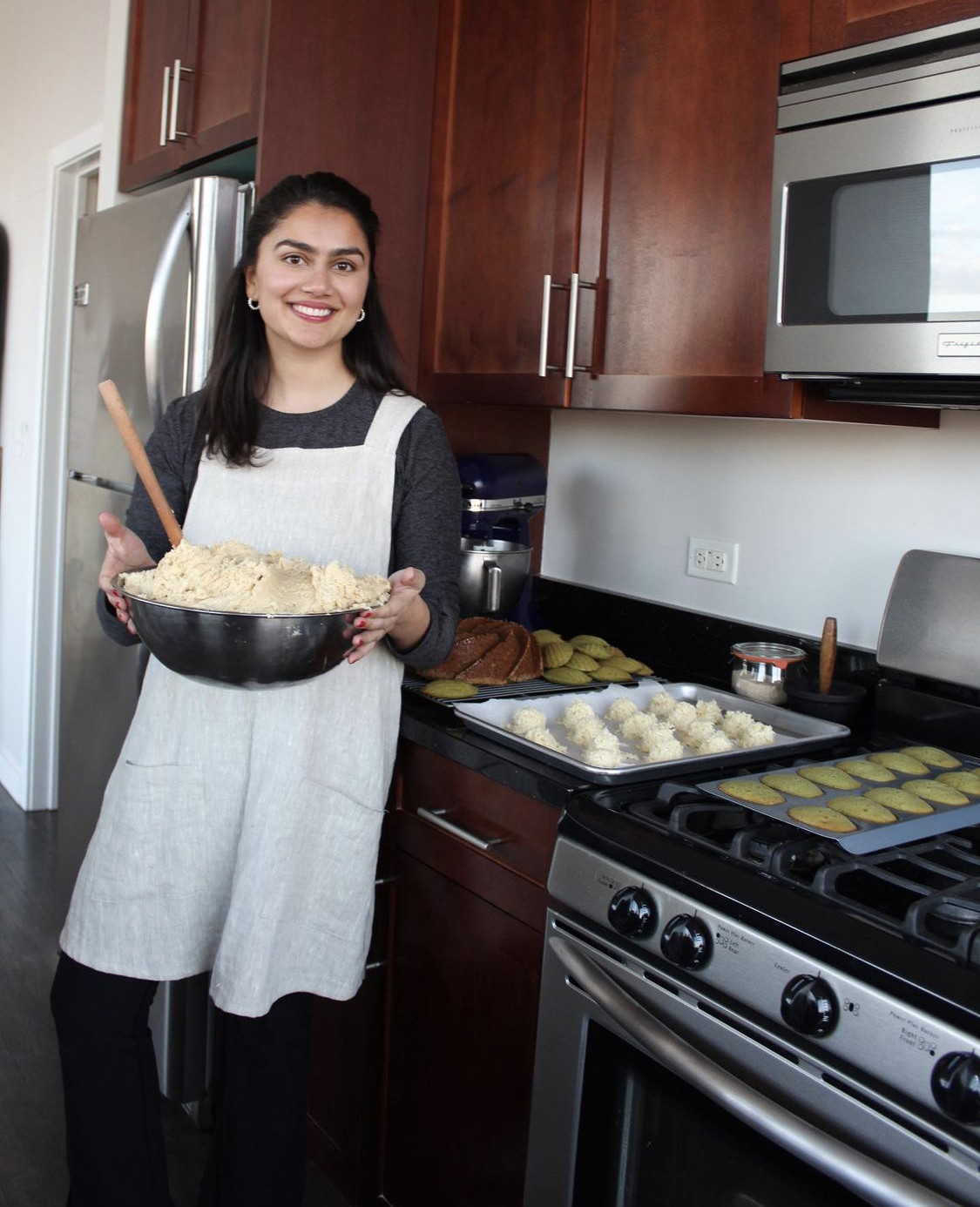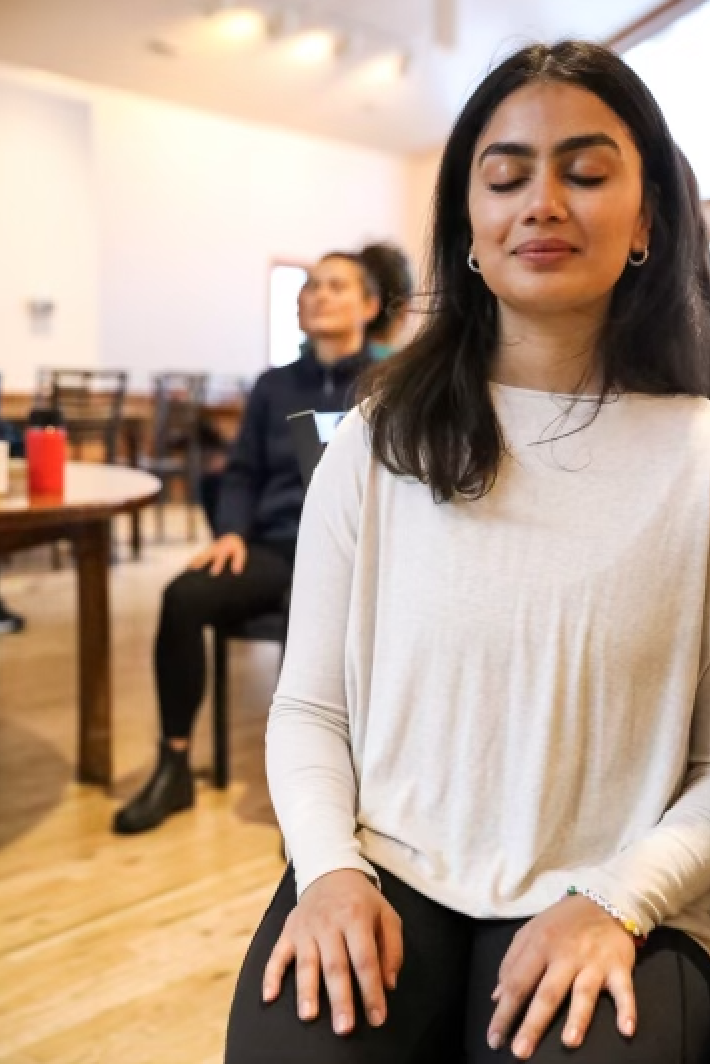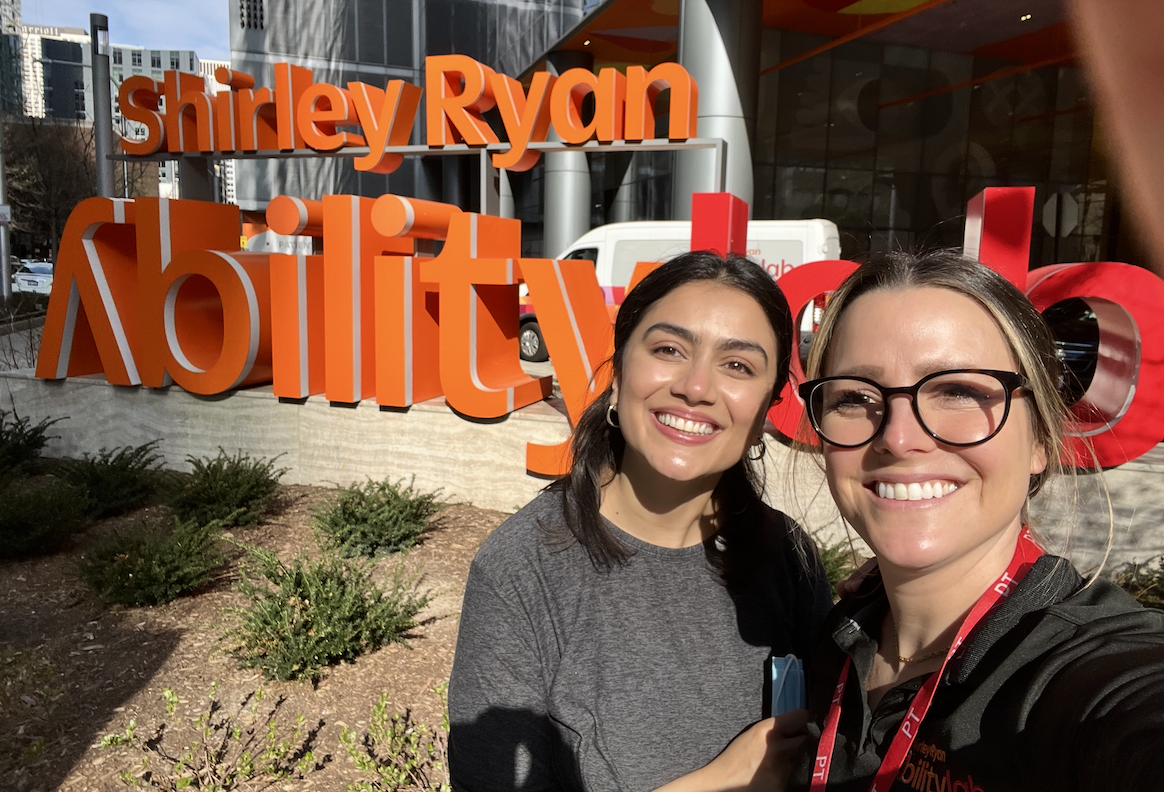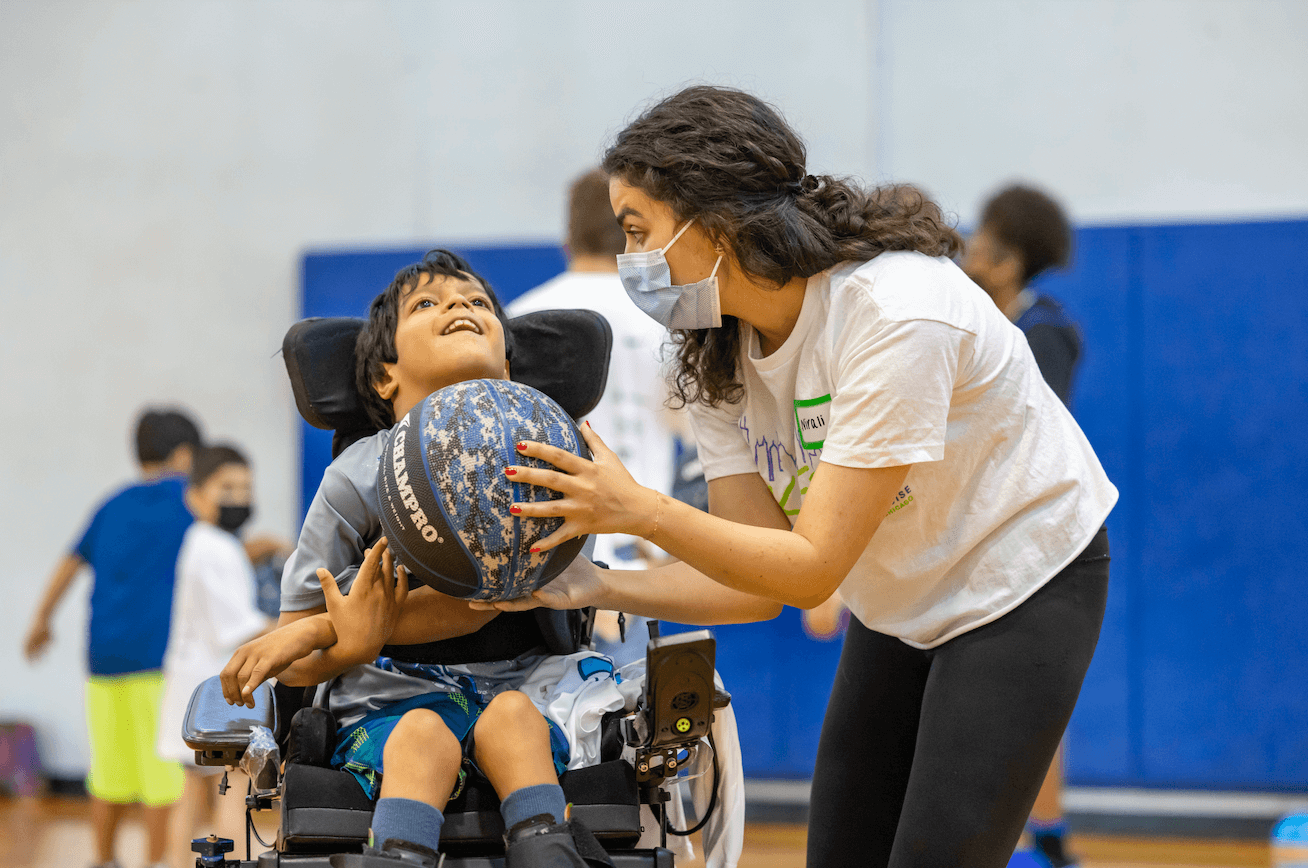Nirali Chauhan, MPH ’19
Who Am I?
How Nirali Chauhan, MPH ’19, turned injury and loss into loving herself and her brain.
On the anniversary of her father’s passing in 2015, Nirali Chauhan came home to Chicago to commemorate his life with her family. While standing in her driveway, she was struck by a neighbor’s SUV.
“I landed on my tailbone first, then my head,” she recalls.
The collision left her with a traumatic brain injury (TBI), unable to walk without dizziness, and reeling emotionally. Grieving her father now included mourning her own body and brain, as well as core beliefs about herself.
“I couldn’t do the things that defined me,” says Chauhan, a former exercise instructor who, at the time of her accident, was a pre-med student at Johns Hopkins University. Post-accident, she struggled with cognitive fatigue, difficulty concentrating, and a fractured identity.
“Being successful was so core to who I was,” she says. “I had to ask myself: if I’m not a great student, athlete, or teacher—who am I?”
Unlike in her classes, there was no right answer. For Chauhan, recovery meant re-creating her physical abilities and exploring new parts of herself. Both would take her to unintended places, whisking her from the streets of Chicago to rural New Hampshire and, eventually, onto reality TV.
One Step at a Time
Hitting her tailbone and head in the accident meant that Chauhan had to rehabilitate both sides of her central nervous system, re-learn how to walk with the stimuli of everyday life, and design her healing around the uniqueness of her life-changing injury.
“Brain injury is so unique to each person because each brain is so different, as is each accident and recovery,” Chauhan says. “The constellation of symptoms is so difficult to treat.”
For this reason, Chauhan cycled through many doctors before finding the right care team for her at the Shirley Ryan AbilityLab, a rehabilitation hospital in Chicago. There, physical therapists encouraged her to simulate baking, a favorite hobby whose movements helped restore her coordination and confidence.
Slowly, Chauhan progressed. She began walking with more stamina, even strolling by Lake Michigan, whose waves once disoriented her early on after her accident. “It’s been so freeing to move my body again,” she says. “For me, recovery has been a journey—and is still ongoing—about finding a way forward.”
From Student to Seeker
Recovery wasn’t linear. Completing her undergraduate degree at Johns Hopkins on time demanded constant physical and emotional effort. Even now, she manages symptoms like cognitive fatigue, balance issues, and sensory overload, which can sometimes impair her ability to speak or walk.
After graduating, Chauhan enrolled at the Geisel School of Medicine at Dartmouth to pursue a master’s in public health but took a break midway through the program to continue healing before returning to finish. “I knew I wanted an MPH before becoming a physician,” she says.
For Chauhan, public health also helped her answer deeper questions of identity. “Rather than think of myself as a successful student, which was so core to who I was, I thought, ‘What is it really about being a student that is intrinsic to who I am?” Chauhan says.
As she began to peel away those layers, Chauhan realized that, no matter what happened to her body or brain, she would “always remain a curious person.”
From a young age, Chauhan was fascinated by how circumstances shaped health outcomes. “I had this drive to be curious about it, figure it out, correct it, and advocate for people to have the resources they need for a good life,” she says. “I really did want to learn tools for how to address health disparities in my community.”
Initially drawn to Geisel for its rigorous curriculum and diverse faculty, she found an unexpected connection in her newfound community of Hanover, New Hampshire. At a local yoga class, Chauhan discovered LoveYourBrain (LYB), an organization supporting brain injury survivors through meditation, mindfulness, and movement. Through LYB, she met mentor Kyla Donnelly Pearce, MPH ’13, PhD ’18, who invited Chauhan to write her master’s thesis research in collaboration with the organization, using its yoga program as the basis for her study.
“That space changed my life,” Chauhan says. “Before LYB, I hadn’t met anyone with a brain injury. Everyone there patiently listened and held space for me.”
Through Dartmouth and LYB, Chauhan saw that community is one of the most powerful public health tools. “Even though we’re all going through things that feel isolating, the one thing that connects us is that we’re all overcoming something,” she says. “Creating purpose out of something really challenging is ultimately what has made me a joyful person today.”
Chauhan’s master’s research became a way to academically explore her lived experience, and LYB gave her practical tools—meditation, breathwork, movement, and connection—to keep healing. Today, she serves on LYB’s advisory board and is an active facilitator.
“Meditation helped me reconnect to my body,” she says. “I felt like my mental space was shrinking during early recovery. Meditation helped me create space again.”
That summer, between graduating from Geisel in 2019 and starting medical school, Chauhan traveled to Indonesia for intensive meditation training. She now teaches meditation to clinical populations in Chicago.
Chauhan also finds baking very meditative. “But I didn’t start putting my oven to use until national attention was brought to a public health crisis,” she says.
In the wake of George Floyd’s murder in 2020, she combined her passions for baking and public health to support her community. “I didn’t have a lot of resources, but I had an oven. So I started fundraising through bake sales,” she says.
Across Chicago, Chauhan baked and delivered hundreds of cookies, donating the proceeds to causes she cared about—organizations like the Chicago Community Bond Fund, Razom for Ukraine, and KEEN Chicago, where she now serves on the board of directors and which empowers youth with disabilities.
“Baking became a tool in my public health toolbox,” she says. “It was tangible. In a few hours, I could make something that brought joy.”
Smart Cookie
Chauhan’s years of work in the kitchen culminated in a 2023 appearance on The Great American Baking Show. “Being on that show was a celebration of what my body could do,” she says. “I live with nausea and coordination issues, so creating recipes I was excited about helped me push through those limitations.”
Now a second-year medical student at the University of Illinois College of Medicine, Chauhan’s patient experience has informed her goal to become a physical medicine and rehabilitation (PM&R) doctor, or physiatrist. PM&R is team-based, combining efforts from doctors, physical therapists, occupational therapists, and other rehabilitation specialists.
“These are the doctors who supported my recovery,” she says. “Team-based care is really what attracts me to it and something my public health education at Dartmouth instilled in me: that we’re so much better together than we are in silos,” she says.
Living with TBI has also given her empathy no classroom could. But Dartmouth, she says, laid the foundation. “Dartmouth taught me that good healthcare happens in community. It’s interdisciplinary. It’s holistic. I carry that into every clinical setting.”
Chauhan hopes to offer the kind of compassionate care she received. “I want to be the kind of doctor who says, ‘I may not know exactly how you feel, but I’ll believe you,’” she says. “I want to be a soft landing spot in scary, isolating moments—and to find the right resources, because I found them, and now I get this big, beautiful life.”
Written by: Jeremy Martin


